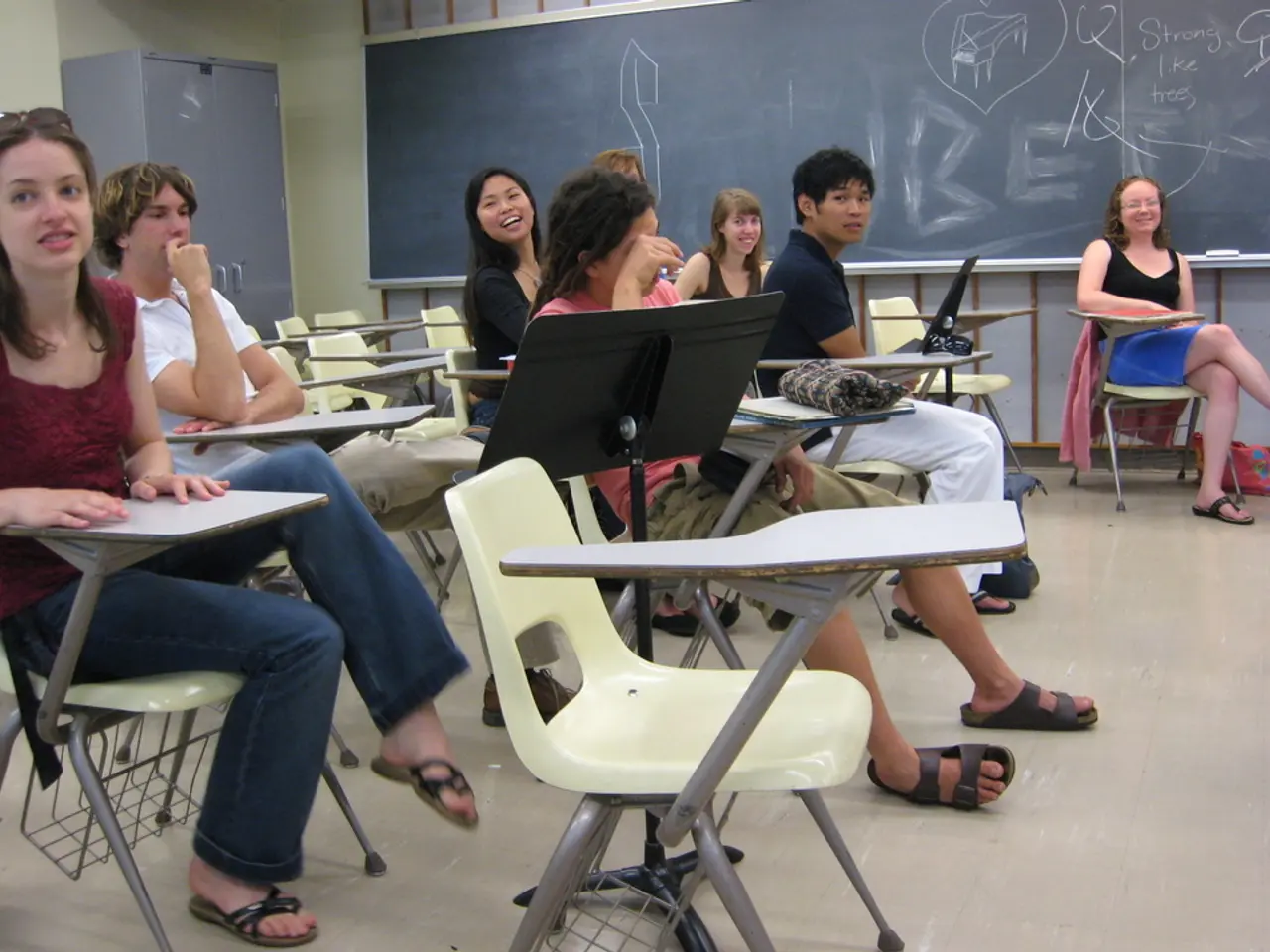Law Intended to Reduce incidences of Teacher Sexual Misconduct: Investigating Its Impact
In the heart of the Bluegrass State, a new education law is causing a stir among educators. Senate Bill 181, enacted under the leadership of Senator Jason Howell, has introduced significant changes to the way teachers in Kentucky communicate with their students electronically.
The bill, which directs school districts to use a traceable communication system for teacher-student electronic communication and bans all other electronic communications, was designed to prevent potential misconduct. However, teachers are expressing concerns about its implications, particularly on their side jobs or businesses and the freedom of speech.
According to a recent study, only about one-fiftieth of 1 percent of Kentucky's licensed public school teachers used electronic communications in a case of sexual misconduct. Yet, the law's strict regulations have left teachers worrying about violations that could lead to the revocation of their teaching certifications.
The new law comes at a time when the teaching profession is facing a crisis. Researchers at Brown University's Annenberg Institute have noted that prestige, interest, and job satisfaction are all at or near 50-year lows. Kentucky, ranking near the bottom nationally in teacher salaries, may find itself struggling further to attract and retain teachers due to the law's restrictive nature.
Teachers argue that the policy constrains their ability to professionally adapt to circumstances, particularly during emergencies like the pandemic. They found themselves communicating with and responding to students by text and email long after school hours had ended, a practice that is now prohibited.
Moreover, the policy may undermine trust in the teaching profession and make it significantly more difficult for teachers to live in the same community with students and their families. For instance, a teacher noted the new requirement to "unfriend" students on Facebook conflicts with her school's mandated suicide-prevention training that instructs her to monitor students' social media posts for warning signs.
The policy also restricts teachers' ability to communicate with their children's friends, coordinate local sports leagues, and be a resource to children seeking support. These restrictions have led to concerns about infringements on teachers' rights outside contracted work time.
Critics argue that such legal bans on teacher communications run counter to constitutionally protected free speech rights, a view supported by an analysis from the American University Law Review. Similar initiatives have failed on grounds of legal overreach, such as Missouri's Senate Bill 54, which was quickly repealed after a state court ruled it a threat to free speech.
The new law does not provide exceptions for health or safety emergencies, raising questions about its applicability and effectiveness in ensuring student safety. As the debate continues, teachers in Kentucky are left navigating a complex landscape, balancing the need for student safety with their own rights and the future of their profession.








